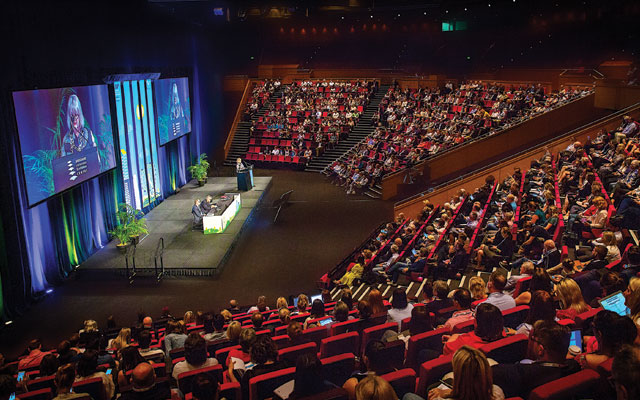Various private and public initiatives are helping to set a positive tone for the future of Brisbane’s associations sector
Despite current challenges in growing the associations sector, Brisbane is noticeably confident when asked about its outlook on winning conferences and business travellers to the city.
The capital of the Australian state of Queensland has carved a niche as an Asia-Pacific associations specialist that connects members from across the region. Its convention centre was also named the world’s best by the International Association of Congress Centres for 2016-2018. That, plus a host of new infrastructure and services in the city may only serve to help seal its leadership position in this space.

Currently, more than A$15 billion (US$10.3 billion) in development is unfolding through major projects either under construction or planned to 2026. These include a new parallel runway at Brisbane Airport that will double its capacity, and a Queen’s Wharf integrated resort designed to change the city’s skyline when it raises an arc-shaped skydeck to echo Singapore’s famed Sands SkyPark Observation Deck.
Also, some 30 new hotels will dot Brisbane’s cityscape between 2014 and 2024, including at its new Queen’s Wharf which will offer 1,000 new rooms and a grand ballroom space to seat 1,000 people when it is unveiled.
“We’ve always done well in associations conferences but our infrastructure growth spurt is making (us) even more attractive,” said Brisbane Convention & Exhibition Centre’s (BCEC) sales director Alison Gardiner. “The kind of value add, that we’ve been working on together with the convention bureau to make sure that the delegate experience is strong, is starting to pay off.
“There’s a free city ferry network so delegates essentially have free transport around the city centre, a free city loop bus, discounts in all the cafes and restaurants around the convention centre, and discounts on our air train which goes direct from the international and domestic terminal right into the convention centre and the city centre,” she said.
Associations constitute about 80 per cent of business events for Brisbane Marketing and for BCEC, Asia-Pacific represents a weighty 95 per cent of international events hosted. This underlines why the city’s economic development board is serious about maintaining and improving its attractiveness for corporate tourism and conferences.
But how is Brisbane responding to trends in the associations space that point to overall slower growth, while more growth is expected in smaller meetings?
“I guess we’ll see the effect of that potentially in the coming years,” said Juliet Alabaster, general manager of business events for Brisbane Marketing. “(But) last year was a bumper year, the biggest year the business events team here had”.
A check at BCEC confirmed that it hosted a record 165 conferences in the last financial year, and the future is looking bright with 29 international conferences inked, of which about 30 per cent are Asia-Pacific regional conferences. An additional 115 national conventions were also confirmed during the period.
Also recently announced was the securing of the Asia Oceania Otorhinolaryngological Head and Neck Surgery (ORL-HNS) Congress which will return to Australia for the first time in 40 years in 2023, adding to several other wins in major events that will move BCEC towards its goal of 20 per cent growth in hosting events by 2023.
“We are a little unusual in Australia because we are a bidding convention centre,” said Gardiner. “So while we have a very strong bureau and we partner with them on most of our international (efforts), it means we do all of (our) project management and have (our own) representatives overseas.
“Our growth strategy is looking at where our markets are strong and its anticipated growth, and also particular industry sectors where we see there is more potential in the future,” Gardiner continued, adding that the venue is keeping a keen eye on emerging areas like bio synthetics and new materials development.
But BCEC is not the only one playing strategy. Australian associations have been bidding for cities like Brisbane to host regional conferences that can strengthen their ties across Asia and Oceania, as will be the case with the Asia Oceania ORL–HNS Congress. And similar moves have been seen from associations headquartered farther away.
“We’re seeing opportunities in new regional meetings as American associations start to (consider) spin-off meetings in the Asia-Pacific so there’s interesting growth in that space,” said Alabaster. “We are looking at what inaugurals or new rotations we can develop in partnership with associations to continue this growth”.
Gardiner added that for American associations that want to increase their profile in Asia, Australia is seen as an easier cultural place to start.
And who can argue with Brisbane, a city that offers an array of iconic Aussie experiences like close encounters with kangaroos, sand islands and rainforests within an hour of the CBD?











